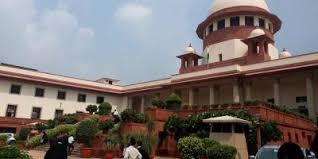The case, therefore, turns upon the Will said to have been executed by Leela Devi. If the said Will is found to be legal and valid, Dhani Ram would succeed to Sohal Lal’s properties. If not, Shiv Singh would be the successor to these properties under Section 15 of the Act of 1956. (Para 7)
The Trial Court rightly opined that mere registration of the Will would not be sufficient to prove its validity, as its lawful execution necessarily had to be proved in accordance with Section 68 of the Indian Evidence Act, 1872 (for brevity, ‘the Evidence Act’), and Section 63 of the Indian Succession Act, 1925 (for brevity, ‘the Succession Act’). Thereupon, the Trial Court found that the evidence of the attesting witnesses to the Will, viz., Lok Nath Attri (DW-2) and Chaman Lal (PW-4), was contradictory as they did not speak to the same effect. In these circumstances, the Trial Court held that valid execution of the Will was not proved. (Para 9)
On the contrary, in appeal, the Appellate Court held to the effect that Leela Devi was of sound mind despite her advanced age of 70 years and that it was natural for her to execute a Will in favour of her brother’s son, Dhani Ram, as he and his family had cared for her well-being during her twilight years. Further, the Appellate Court was inclined to overlook the discrepancies in the evidence of the two attesting witnesses to the Will, viz., Lok Nath Attri (DW-2) and Chaman Lal (PW-4). It is on this basis that the Appellate Court reversed the findings of the Trial Court. (Para 10)
However, the High Court, in exercise of second appellate jurisdiction, took a different view. The High Court was of the opinion that as Dhani Ram had taken a keen interest in the execution and registration of the Will, as noted by both the Courts below, that would constitute a reason in itself to entertain some suspicion and the mere registration of the Will would not suffice to dispel the suspicious circumstances surrounding it. The High Court further held that discrepancies in the evidence of the attesting witnesses to the Will were of significance and the sum effect thereof was that the very execution of the Will was not proved in terms of Section 68 of the Evidence Act and Section 63 of the Succession Act. In consequence, the High Court refused to act upon the said Will and disallowed Dhani Ram’s claim based thereon. (Para 11)
Bare perusal of the statements made by these two attesting witnesses demonstrates that they are not on same page. Lok Nath Attri (DW-2) claimed that Leela Devi signed the Will in his presence and in the presence of Chaman Lal. However, and most significantly, he did not state that Chaman Lal and he affixed their signatures in the document in the presence of Leela Devi. On the other hand, Chaman Lal claimed that he put his signatures at the bottom of the pages at the request of Dhani Ram and that he never saw Leela Devi affix her signatures in the document. (Para 17)
Viewed in the context of the legal requirements and the law laid down by this Court, we find that neither of the attesting witnesses in this case fulfilled the mandate of Section 63(c) of the Act of 1925 to prove the Will. Though Lok Nath Attri claimed that Leela Devi affixed her signatures in the Will in their presence, which was vehemently denied by the other attesting witness, Chaman Lal, the fact remains that Lok Nath Attri also did not state that he affixed his signatures in the Will in the presence of Leela Devi. This is one of the compulsory requisites of Section 63(c) of the Succession Act. (Para 23)
We may also note that Lok Nath Attri claimed that he had good relations with Leela Devi and that she would meet him regularly for some work or the other. Having stated so, he surprisingly said that Leela Devi may have lived for 2-3 years after the execution of the Will. However, Leela Devi allegedly executed the Will on 27.10.1987, got it registered on 03.11.1987 and expired on 10.12.1987. Therefore, she lived for barely a month and a half after the execution of the Will. The fact that Lok Nath Attri did not recall this crucial detail casts any amount of doubt on his credibility. (Para 24)
On the above analysis, it is manifest that compliance with the essential legal requirements, in terms of Sections 68 and 71 of the Evidence Act and Section 63 of the Succession Act, was not established in order to prove the execution of Ex. DW-2/A Will. As Dhani Ram failed to prove the execution of the Will in terms of the mandatory legal requirements, Shiv Singh would be entitled to succeed to the properties by way of intestate succession under Section 15 of the Act of 1956, as rightly held by the Himachal Pradesh High Court. (Para 27)
SUPREME COURT OF INDIA
2023 STPL(Web) 317 SC
[2023 INSC 876]
Dhani Ram (Died) Through Lrs. & Others Vs. Shiv Singh
Civil Appeal No. 8172 of 2009-Decided on 6-10-2023
https://stpllaw.in/wp-content/uploads/2023/10/2023-STPLWeb-317-SC.pdf







